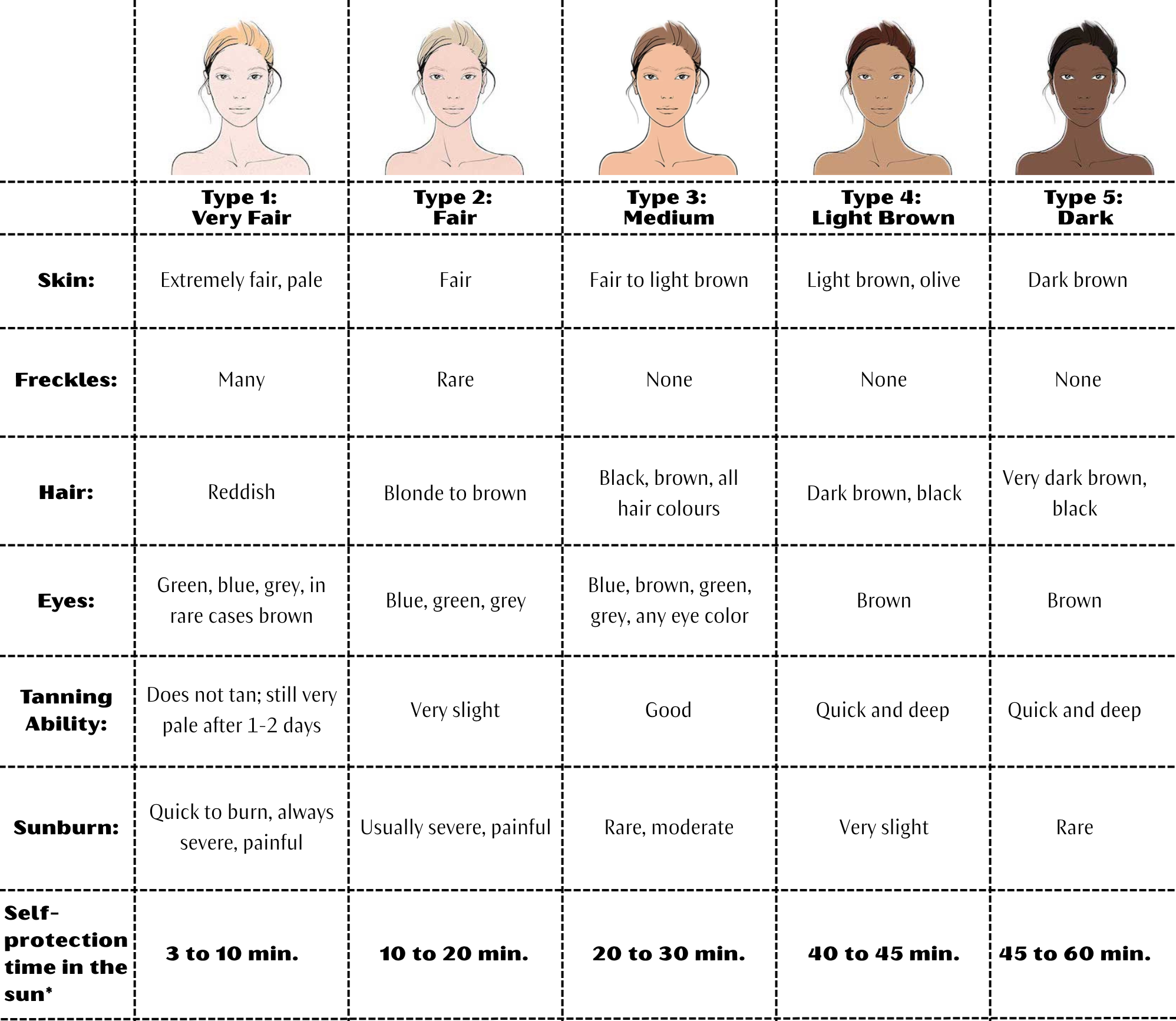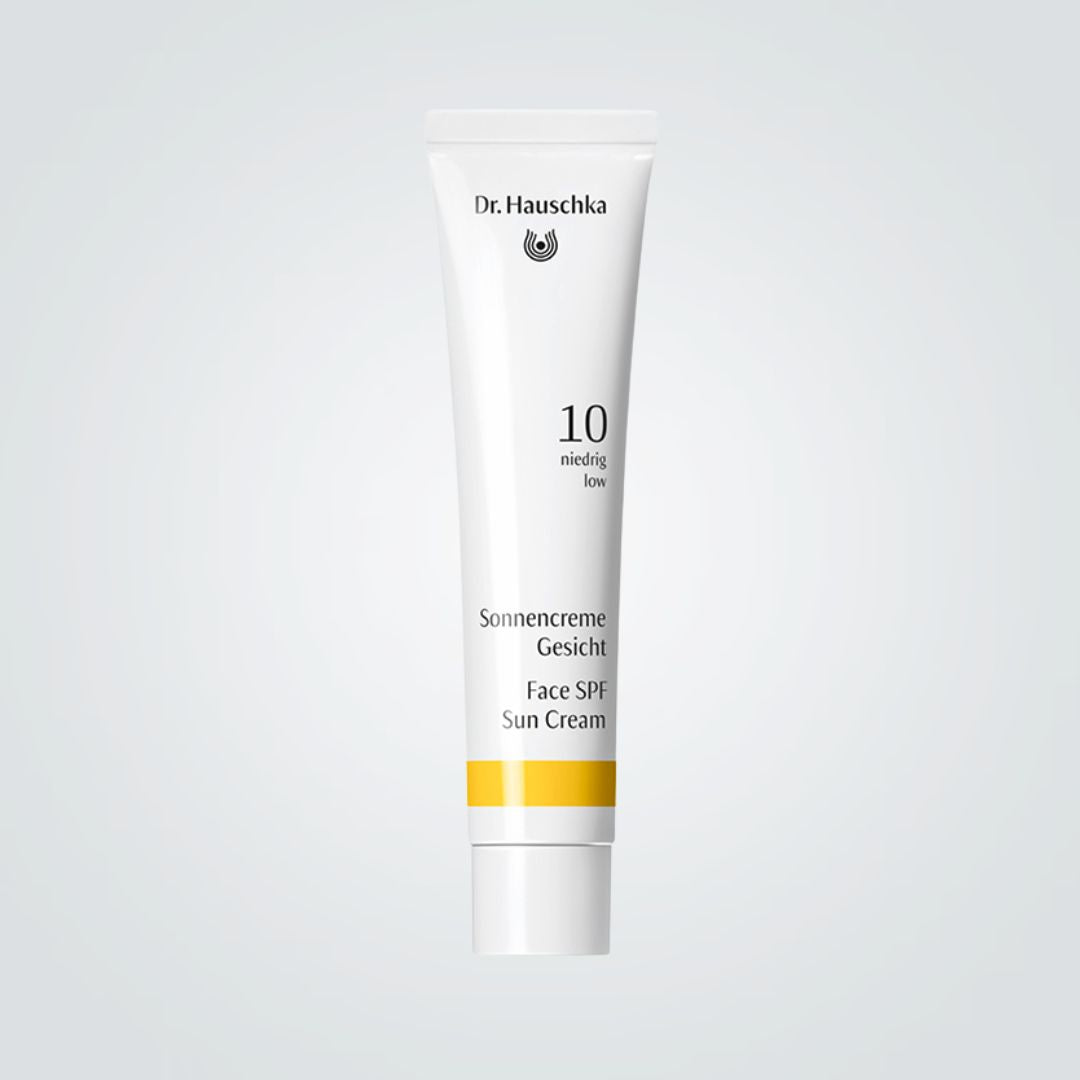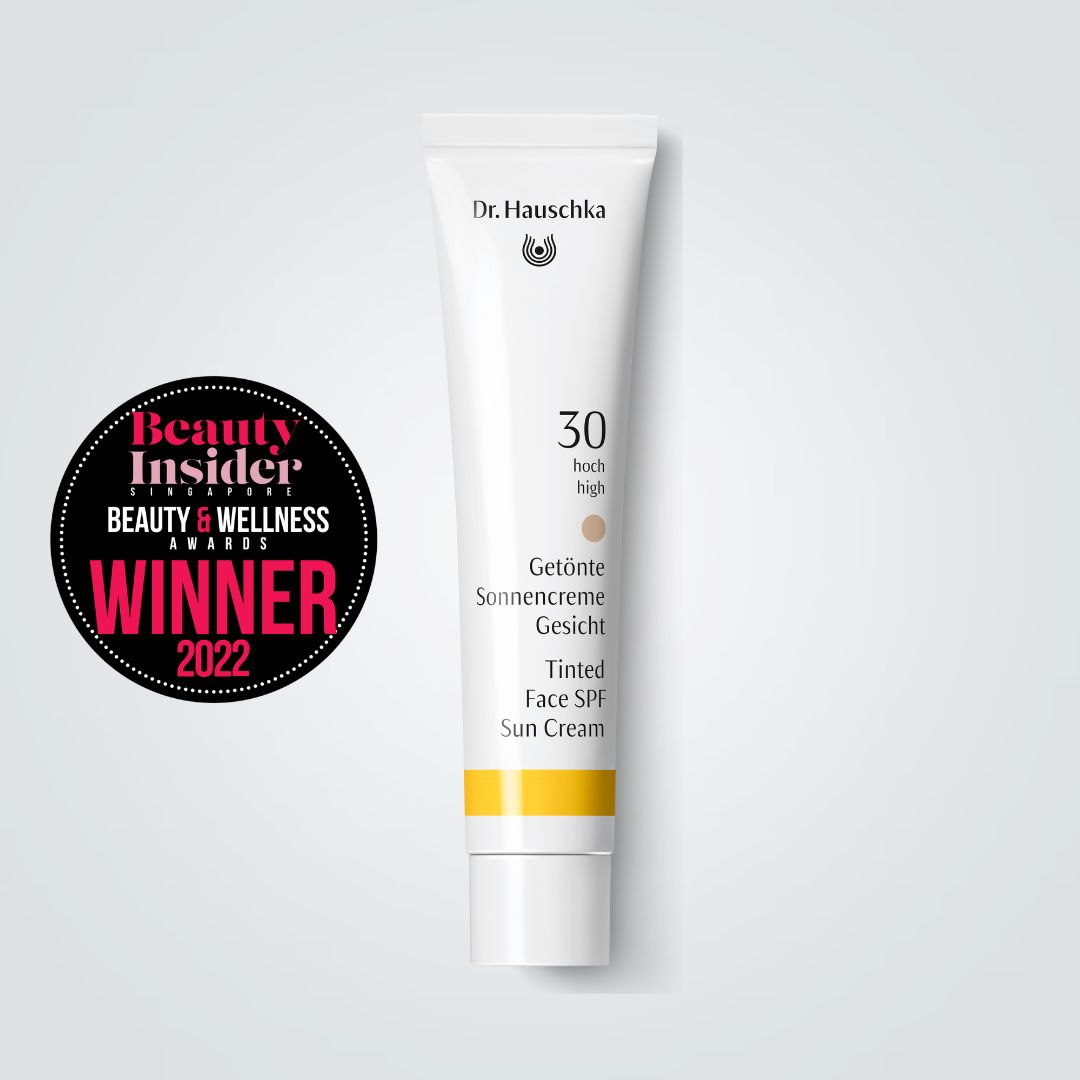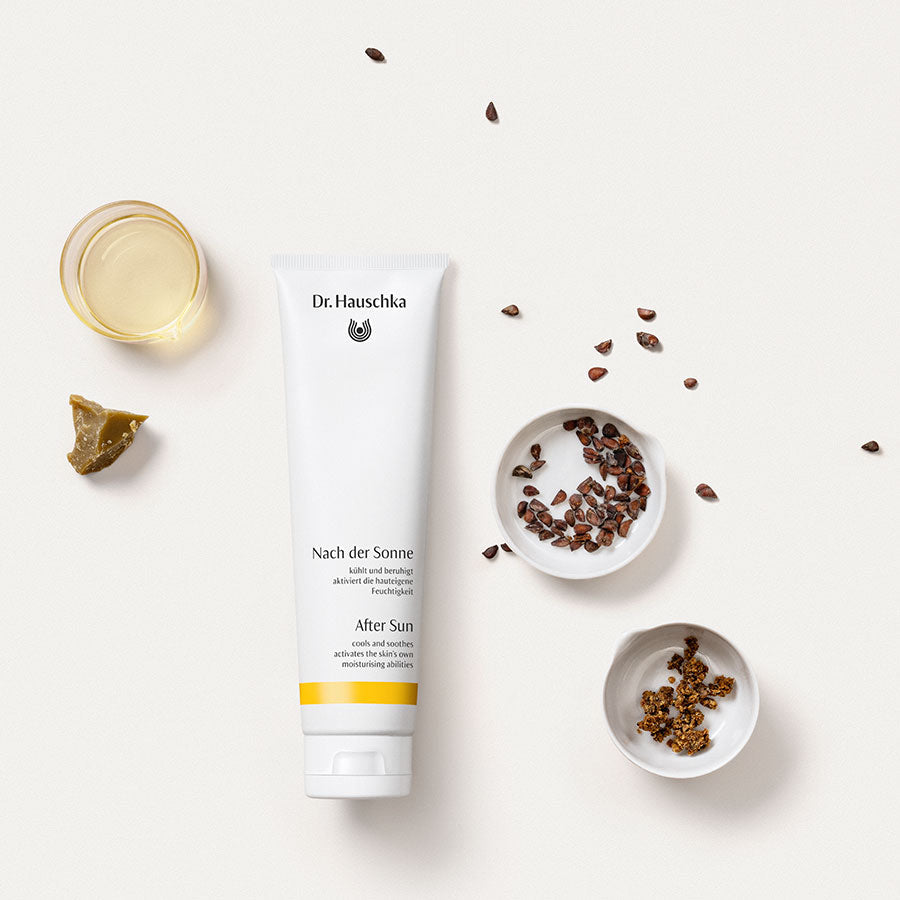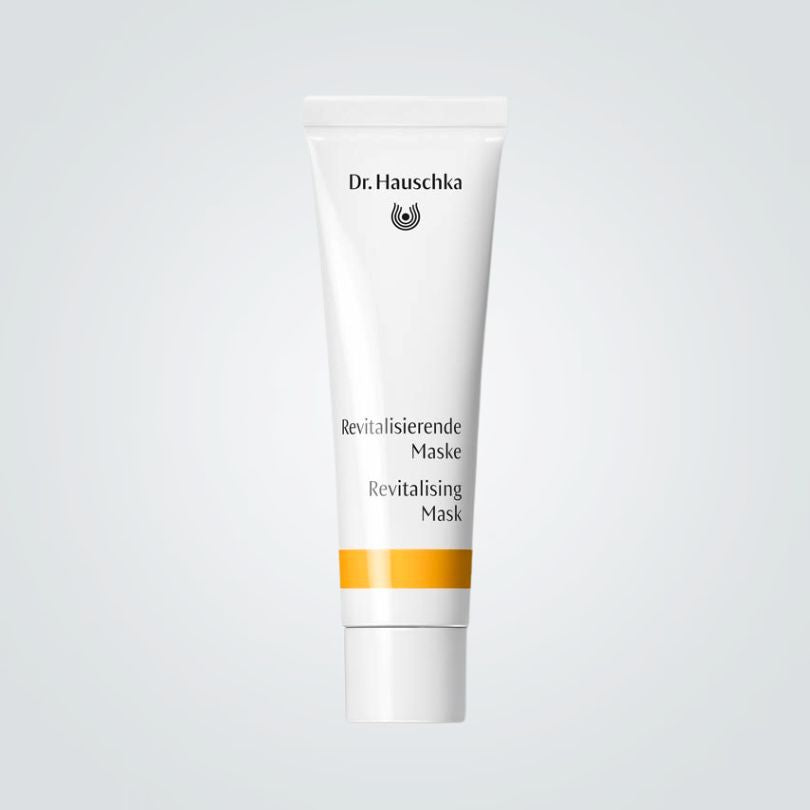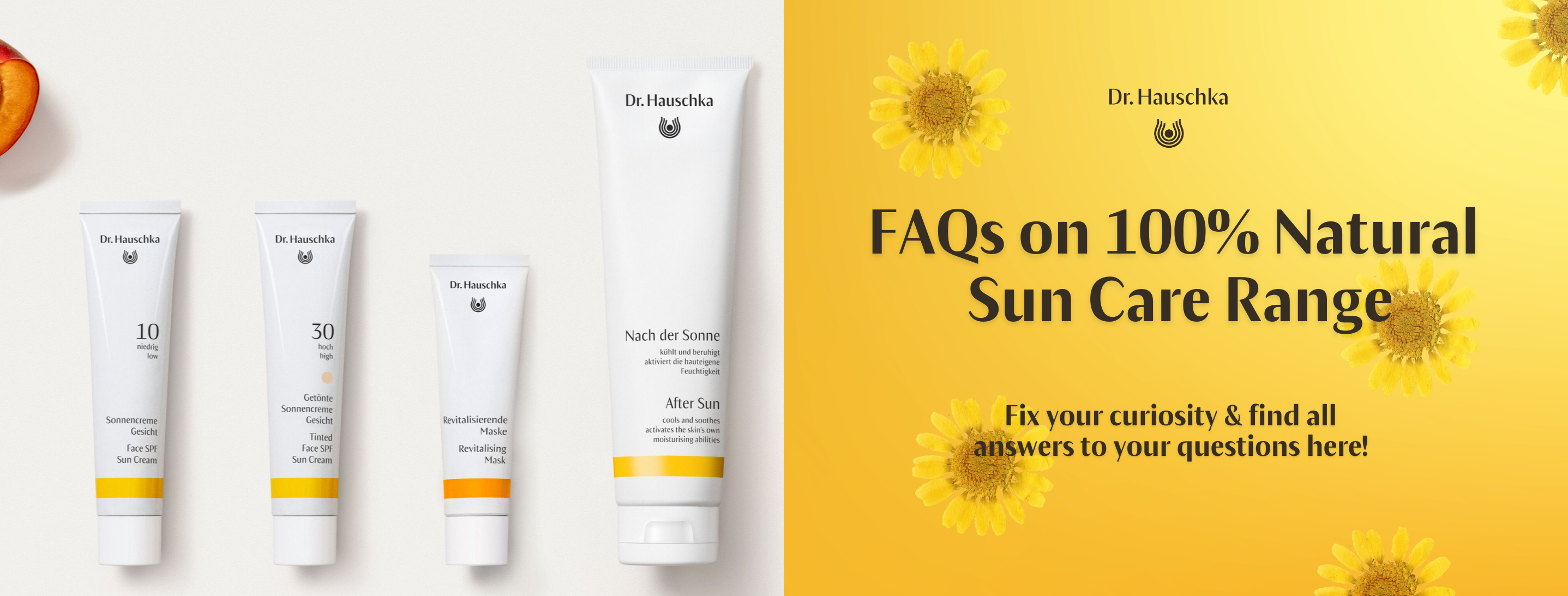
Frequently Asked Questions - Sun Care Range
You ask, we answer.
All About NEW SPF10 & Tinted SPF30.
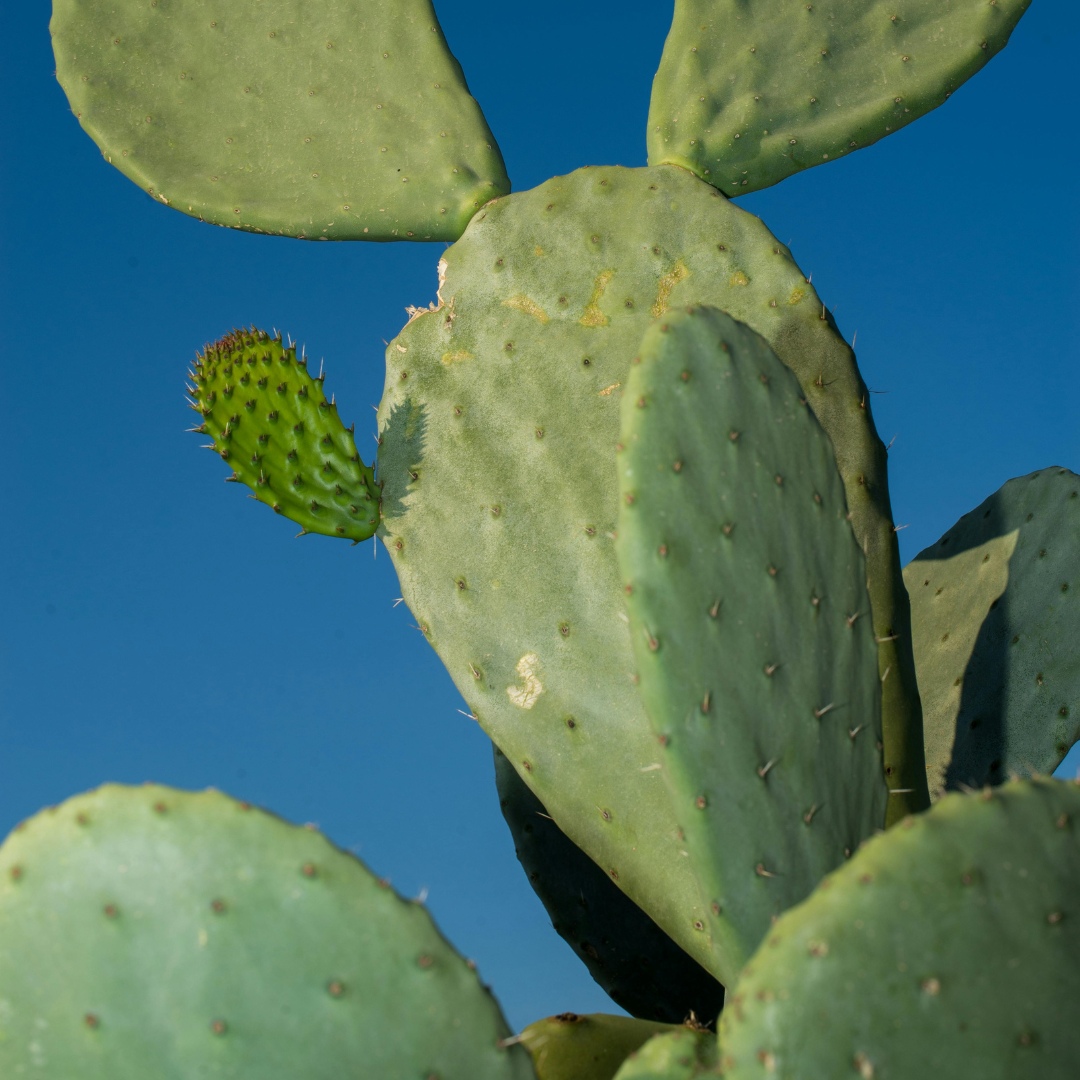
Why prickly pear and apricot?
The prickly pear, which we use exclusively in our sun care products, is a real fighter: vital, firm, and bursting with moisture. Its bright green flesh has an antioxidant effect and locks in moisture.
The fruit of the apricot, meanwhile, is a physical manifestation of light: orange-yellow like the sun, downy soft on the outside and enticingly juicy on the inside – it is a true role model for our skin.
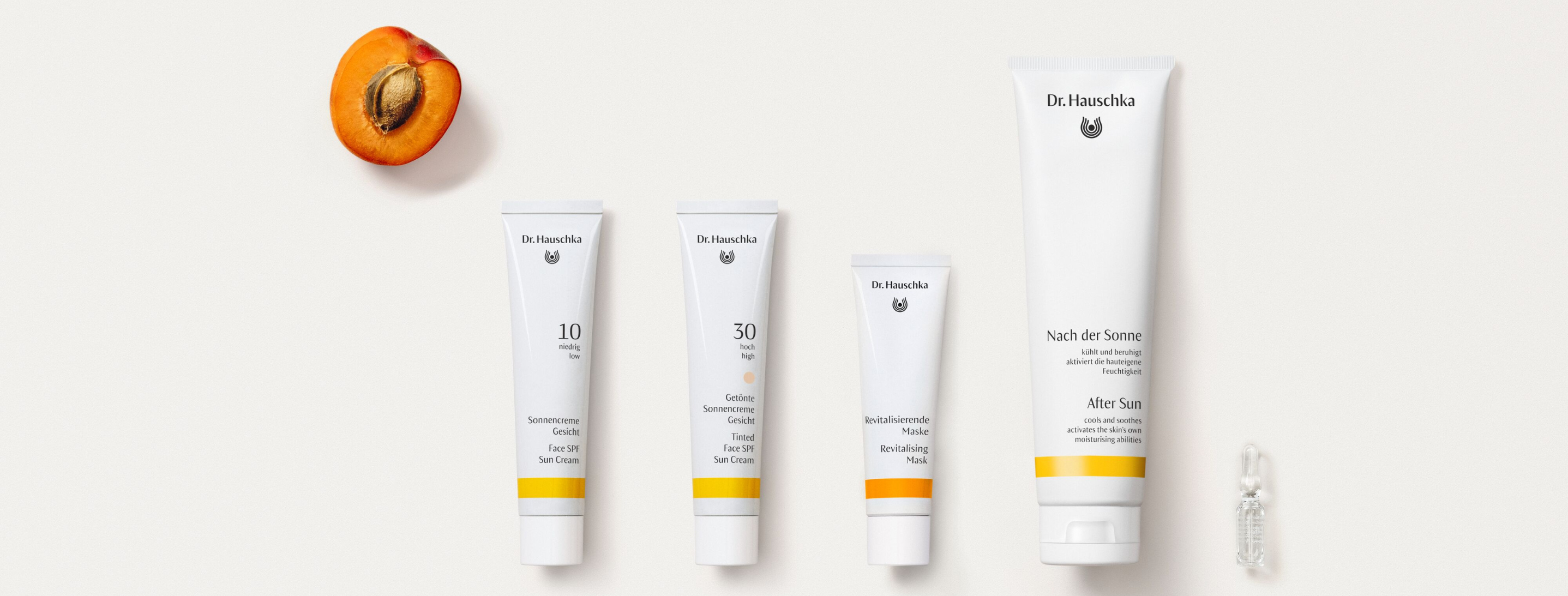
What is “mineral sun cream”?
Organic (also known as chemical) filters penetrate the skin and convert UV light to heat. In contrast, inorganic (mineral/physical) filters sit on the skin and reflect UVA and UVB radiation.
Dr. Hauschka's guiding principles are sustainability and environmental protection. We take responsibility for our environment and its biodiversity by using natural cosmetics. Because we are aware of the negative effects that chemical sunscreens have on our environment, all of our sunscreens contain titanium dioxide and zinc oxide mineral UV filters.
These filters begin working as soon as they are applied, are well tolerated by the skin, and are not hormone-active. They also meet our high-quality standards and are certified by the NATRUE natural cosmetics standard because we believe that only what is good for our natural resources is also good for us.
How much sun is healthy?
The sun is much more than just physical radiation to us. It is a vital source of life, a powerful source of energy, and pure joy! Whether we can see it or not, sunlight governs the seasons and your own natural rhythms. The sun's vitality is especially noticeable in spring, when nature awakens and the light stimulates the endorphins in your body.
Your inner world becomes more colorful and vibrant as the outside world does. A few minutes of sunlight per day improves your mood and gives your immune system a boost of energy. It leaves you feeling energized, active, and alive. But what happens if you don't get enough of it?
Sunlight deprivation has been linked to depression and low vitamin D levels. When we are exposed to sunlight, our bodies produce vitamin D, which strengthens our bones and teeth. Sunlight is also thought to help protect against autoimmune diseases, chronic inflammation, and allergies.
But, if you get too much of it, the sun's power can be dangerous. It can cause skin to become dry and red, as well as cause sunburn and premature aging. To avoid this, you must take a responsible approach to the sun, which means carefully acclimating your skin to the sun and understanding your own self-protection time.
This is the maximum amount of time you can spend in the sun without protection each day before your skin turns red. If your skin is stressed as a result of excessive sun exposure, our lightweight After Sun lotion can help. It cools and refreshes your skin while also hydrating and relaxing it after sunbathing.
